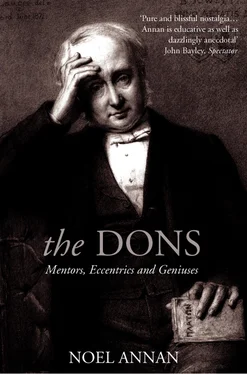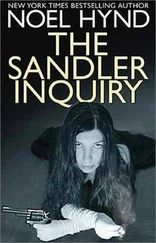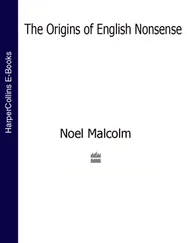Perhaps the don in recent years who reminds one of Newman was F. R. Leavis in Cambridge. Leavis used some of Newman’s tactics to create a following. Like Newman he was proud to be both persecutor and persecuted. He accused his colleagues in the faculty of English of betraying the true principles of literary criticism, insinuated they were dullards or featherweights, and was aggrieved when those who were in fact excellent critics, but were not crusaders, were promoted and he was not. He was more successful than Newman in persuading a wider public that he had been ill-treated and embodied the true ethos of Cambridge. Each number of Scrutiny which he edited was a ‘Tract for the Times’. That he was an outstanding literary critic was beyond question. What is more he declared that criticism, not philosophy (let alone theology), was to be queen of the sciences. Leavis claimed to reveal not just the meaning of literature but the meaning of life. He told the young which values to praise and which to denounce and who, present as well as past, was to be despised.
That was why his disciples were as ardent as Newman’s. They admired his austerity and his unremitting seriousness. They were fortified when he toppled poets and novelists of long-established reputations – why waste time on them, he declared, when those whose vision of life was supremely important beckoned? Writing about Newman, Owen Chadwick *judged that the Oxford students flocked to hear him because he was a revolutionary. They admired him precisely because he enraged the heads of houses, the proctors, the tutors and other symbols of authority in the university. Leavis, too, made himself an outcast, embattled, friendly and helpful to those who accepted him and sat at his feet and correspondingly hostile to those who did not accept that there is in the end only one way to live and only a handful of great poets and novelists who teach one how to do so.
To regard Newman solely as a don would do him monstrous injustice. Newman changed the face of the Church of England. The Oxford Movement brought back the mystery of the sacraments, and the beauty of worship. He understood the romance of Oxford, the dignity of its buildings, its gardens and the flowers in them, whose genius loci cast a spell of lasting loyalty over its alumni. The university ceased to be merely a corporate body with endowments and privileges. It became, as Sheldon Rothblatt puts it, ‘a thrilling emotion-laden higher order conception of higher education’, and the colleges centres of aristocratic culture linked to certain schools, grammar as well as public schools, which fed them with pupils. Newman did not go quite as far as Pusey, who asserted that it was no part of a university to advance science, or make discoveries ‘or produce works in Medicine, Jurisprudence or even Theology’: though he agreed with Pusey that a university existed to ‘form minds religiously, morally, intellectually, which shall discharge aright whatever duties God, in his Providence, shall appoint to them’. Newman considered the university’s role was to teach universal knowledge. Let the scientists and their laboratories go elsewhere. That is why, Rothblatt noted, Victorian researchers were more famed for the learned societies, the botanical gardens, the museums, libraries and other specialised institutions they created, than for the publications by which their German confrères made their reputation.
Newman breathed a new spirit into a university that had become complacent and becalmed. But ‘the voice that breathed o’er Eden’ was not the gentle Keble’s voice. It was the voice of a doctrinaire – indubitable, incontestable; and the reverberations were disagreeable. Accusations of heterodoxy flew about and the atmosphere of the university became sour and embittered. The tempest-tossed seas that charismatic dons leave behind them take some time to subside, and Newman’s career was to trouble the man who, more than any other, gave meaning to the word don: Benjamin Jowett, tutor and Master of Balliol College.
*Sir Leslie Stephen (1832–1904), fellow of Trinity Hall (1854–64), mountaineer, rowing coach, literary critic and first editor of The Dictionary of National Biography .
*Anthony, Lord Quinton, life peer 1982, fellow of All Souls (1949–55), New College (1955–78), President of Trinity College, Oxford (1978–87); philosopher.
†G. M. Young (1882–1959) fellow of All Souls, civil servant in the Board of Education, scholar of the Victorian era and author of Portrait of an Age (1936).
*Sheldon Rothblatt, professor of history at the University of California, Berkeley since 1963 and some time Director of the Center for Studies in Higher Education.
*Harold Laski (1893–1950), professor and teacher on politics at LSE for thirty years; prominent Fabian Society member and publicist for socialism.
*Owen Chadwick, OM, Regius professor of modern history (1968–83), Master of Selwyn College (1956–83).
CHAPTER FOUR Benjamin Jowett and the Balliol Tradition
For a century and a half Balliol has been one of the most splendid colleges at Oxford or Cambridge. It sent a host of distinguished graduates into all walks of life; its successes in the schools were proverbial; its junior common room provided a scene of animated intellectual life which few other undergraduate societies could rival. It was a society with a history of academic distinction and the nursery of statesmen, pro-consuls, scholars, lawyers and men of letters. When Harrovians sang, ‘the Balliol comes to us now and then’, they acknowledged that a Balliol scholarship was prized higher by headmasters than that of any other college – because the winner would have had to have faced the stiffest competition. How did this come about? The answer is that it was the work of Benjamin Jowett.
No famous institution owes its quality merely to one man. The foundations of Balliol’s success were laid by two former masters, Parsons and Jenkyns. Their reforms made possible the election of fellows on their merits: Jowett was elected while he was still an undergraduate. When Hawkins got rid of Newman, Froude and Robert Wilberforce as tutors, Balliol supplanted Oriel. But whereas Oriel had offered fellowships to men from other colleges, and by this means overcame the insularity of the past, Balliol found a less spectacular method of finding scholarly candidates for fellowships. Less spectacular but simple – the method was to teach the undergraduates well and train them in the traditions of the college. This was Jowett’s doing. No doubt he was helped by historical accidents – by his senior, Tait, a Balliol tutor, going to Rugby as headmaster in succession to Arnold, and sending the new breed of high-minded public schoolboy to his own college. No doubt he was helped by Balliol’s Scottish connections, so that hard-working, hard-headed Scots came there to irritate the gentlemanly idlers. But it was Jowett who directed the energies of both breeds – and those of the idlers. His own parents had been spendthrift failures; his family, once rich, had fallen on evil days. As a result he was haunted by the spectre of wasted lives and determined that his pupils should not waste theirs. ‘Usefulness in life’ was his yardstick, and he observed how often men of great ability failed because they were shy, awkward or ill mannered. His enemies declared that his only criterion was worldly success – that he felt that a pupil who had failed in life had somehow personally insulted him – that Balliol had been let down. The Warden of Merton put it differently: ‘He never affected or specifically admired an “unworldly” character … he was always disposed to regard worldly success as a test of merit … he hoped that his pupils would not like those of another great teacher “make a mess of life”.’ (The other ‘great teacher’ was, of course, Newman; and Jowett considered that those who went over with him to Rome or were bewildered and deserted, as Arthur Hugh Clough found himself, had ‘made a mess of life’.)
Читать дальше












